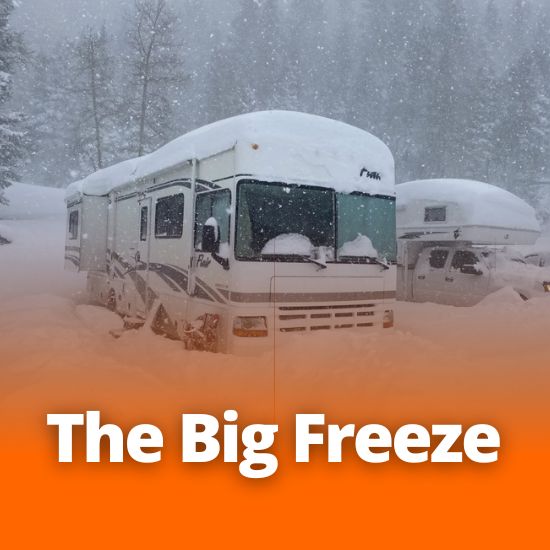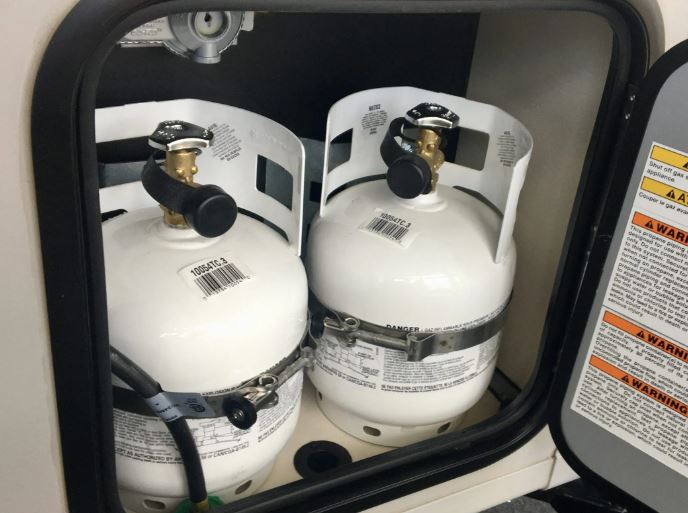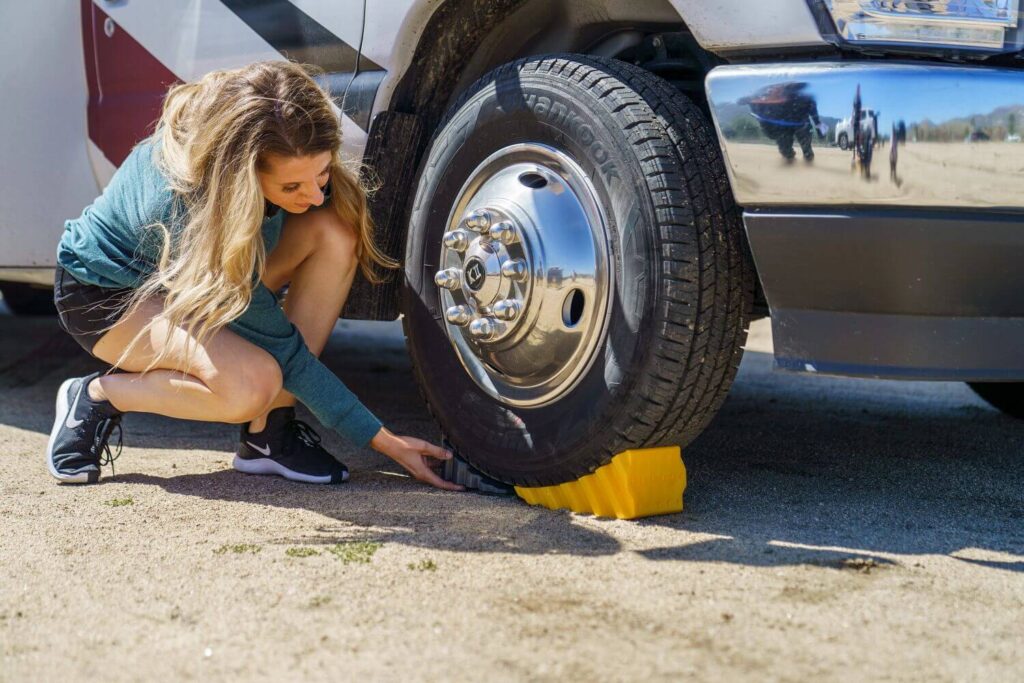
Are You Ready for the Big Freeze?
Winterizing is the key way to protect your trailer or RV during winter, removing the worries of a wrecked water system that’ll put a serious dent in your wallet to fix.
Risks of not winterizing your unit when the temperature drops include:
- Cracked holding tanks
- Cracked toilet
- Burst/cracked water pipes and lines
- Ruining the entire water system that ends in damage to flooring, walls, and appliances
When and Why:
Even 24 hours can make a difference if the temperature drops below 0°C, and you’ll want to have your unit protected. But, if you’re heading south this winter with your trailer and you’re leaving before the first snowfall, you should be fine!
For those of us keeping our campers stored here in the Great White North (and won’t be keeping it in a heated storage facility), you’ll want to invest prepping it to save your pipes and tanks from cold damage.
- Watch the weather, you’ll want to winterize before the first major freeze. Getting in last minute to have it done for you, or getting a place in an indoor facility, can be a challenge.
- Consider getting your RV winterized and stored early for peace of mind (in Alberta the weather can be weird, so this could be the first week of September for some of us).
Winterize with Us!
What is It?
It’s basic science: when water freezes it expands, and this expansion can crack anything holding water. Winterization is done to protect the water system of your rig, everything from holding tanks, water lines, the toilet, and water heater and save you from messes resulting from broken lines. Delamination, damaged flooring, mold and mildew, can all be results from an improperly prepped system! And those repairs will cost a pretty penny.
You’ll be flushing your water lines and tanks, removing all the water from your trailer before filling the lines with antifreeze. Some RVs are equipped with winterizing controls, so take a look at your owner’s manual or manufacturer site for details on that before doing anything else. Now, if you don’t want to head into a shop, you can winterize your unit yourself, for that you’ll need a few things like:
- Non-toxic RV specific antifreeze – usually 2-3 gallons
- Water pump converter kit OR hosing that connects to the water pump inlet or an external hand pump
- Tubing to connect to the black water holding tank and a cleaning wand
- Don’t use the same tubing with your black and fresh water, never the twain shall meet, no crossing the streams, and all that.
- Water heater bypass kit (some RVs are already equipped with one)
- Moisture absorbing dry-packs
- Tools to remove/install drain plugs
*Note that your RV/trailer may have different requirements for proper winterization.
But beyond having your water system prepared, there are other aspects of winter storage to undertake. There’s the propane system, electronics, engine and fuel tanks on motorized units, and tires to consider while your rig sits during the off-season. We’ve listed a few tips for you:
(Please note that these lists are not going to apply or be totally conclusive for every unit. Follow manufacturer specifics for your RV and your best judgment.)
Propane
- Remove propane tanks and safely store in a protected and warm area (that’s not inside the trailer or RV)
- Inspect hoses or fittings, replacing any that show signs of wear or damage
- Protect fittings with plastic bags and rubber bands to avoid weather or pest damage.


Electronics
- Remove any electronics if possible, such as: TVs, DVD/Blu-ray players, tablets, and laptops.
- Remove batteries from things like clocks, remotes, and sensors
Engine and Electrics
- As necessary: top up oil, transmission fluid, and use winter windshield fluid (this type includes a de-icer so it won’t freeze in the tank)
- Add fuel stabilizer and follow manufacturer directions to be sure it will work as required
- Top off fluids in the batteries as per manufacturer instructions
- Disconnect and store batteries in a safe, warm, and dry location (not on concrete)
- Turn off the main breaker
- Disconnect from shore power
- Follow any manufacturer recommendations for generator storage


Tires
- Park on concrete if possible
- Consider putting down a waterproof tarp and/or covering your tires (use your best judgement)
- Set your parking brake (if present)
- Set wheel chocks
- Engage leveling jacks (not stabilizing) to avoid flat spots from developing
- Lower the stab jacks if you’re inside the unit but don’t have them taking the weight
- Use an external jack to lift the camper, reducing weight on the tires
- You can also move your unit a few times over the season break to rotate the position of the tires
Other
- Fully wash your awning (according to manufacturer directions) and let it dry completely before rolling it back up. Cover it to protect from elements if you can.
- Close all vents and plug the ones without covers with steel wool or aluminum foil to deter pests
- Check over the roof and sides carefully for cracks and seal appropriately – we recommend Dicor sealants!
- Cover your A/C unit
- Properly clean and store your sewer hose
Proper winterization and seasonal preparation can extend the life of your RV for years to come, so don’t risk it and make sure you’re ready for this year’s deep freeze!
